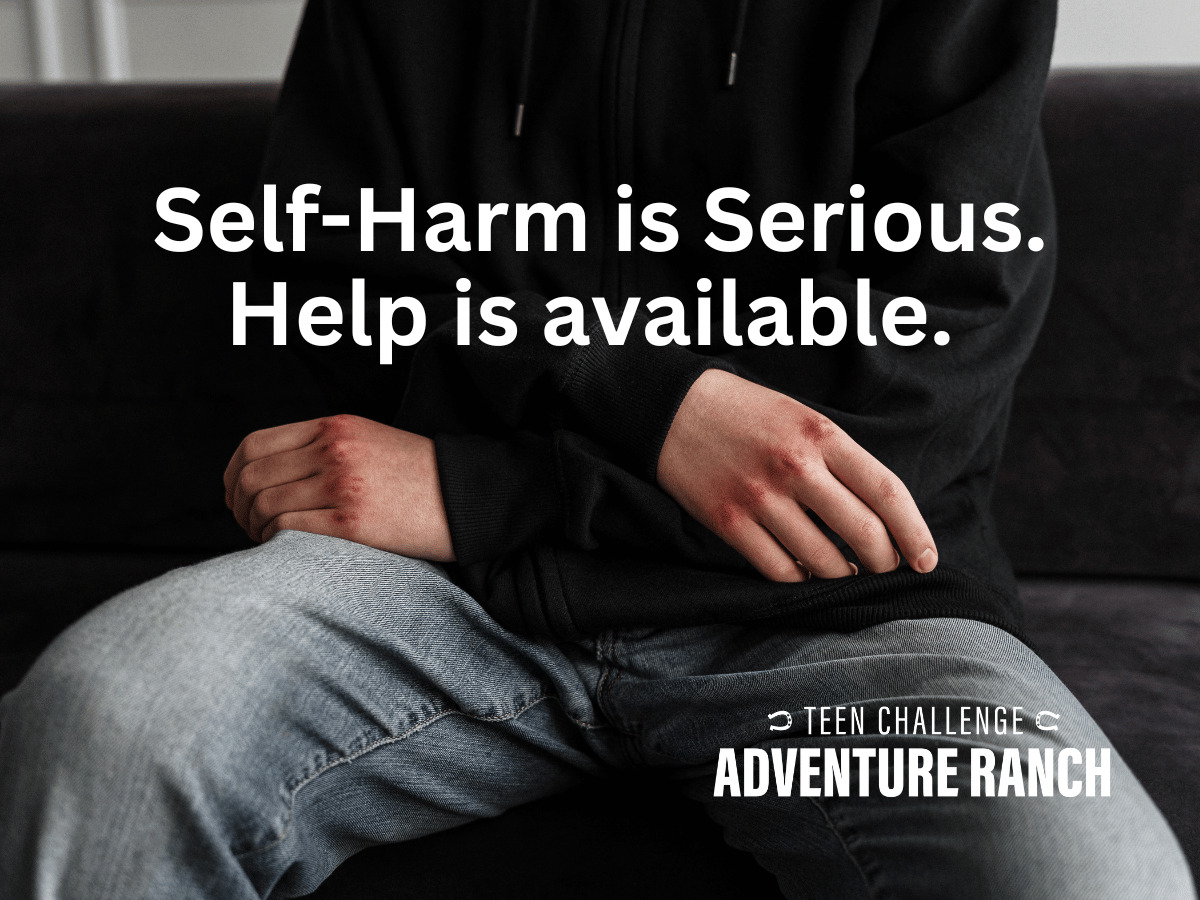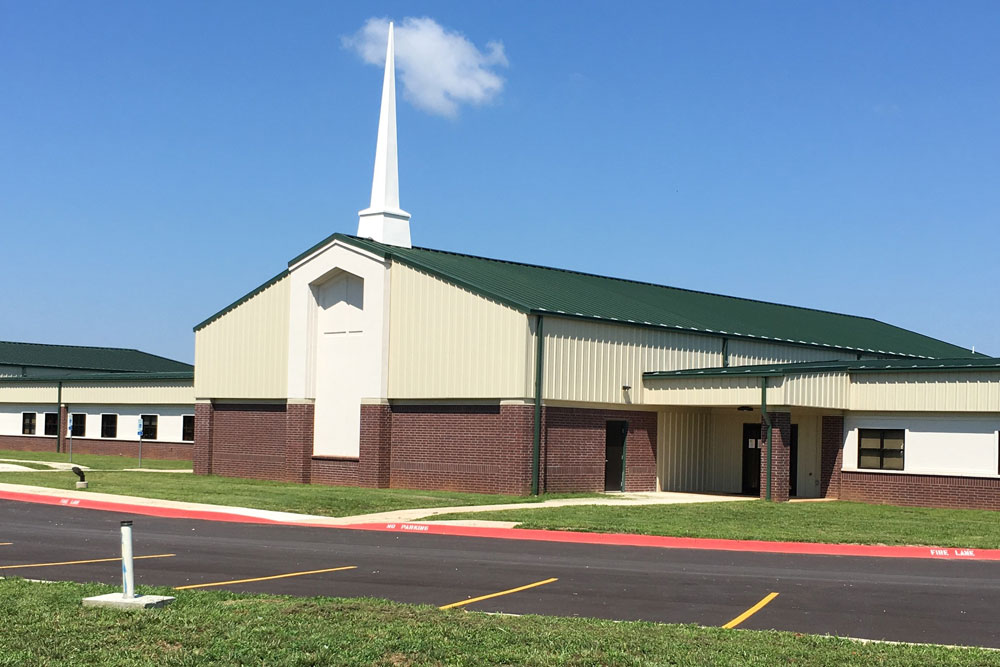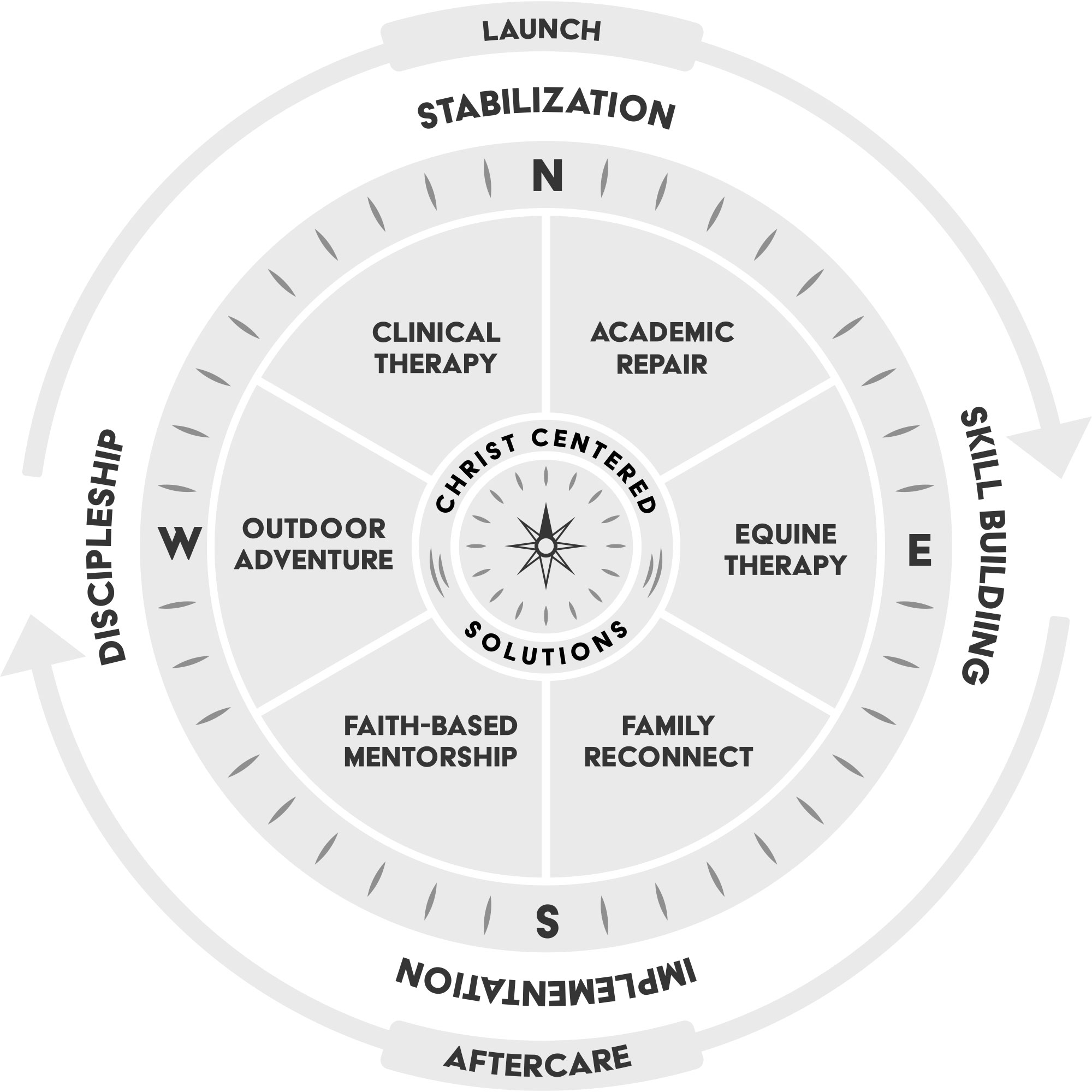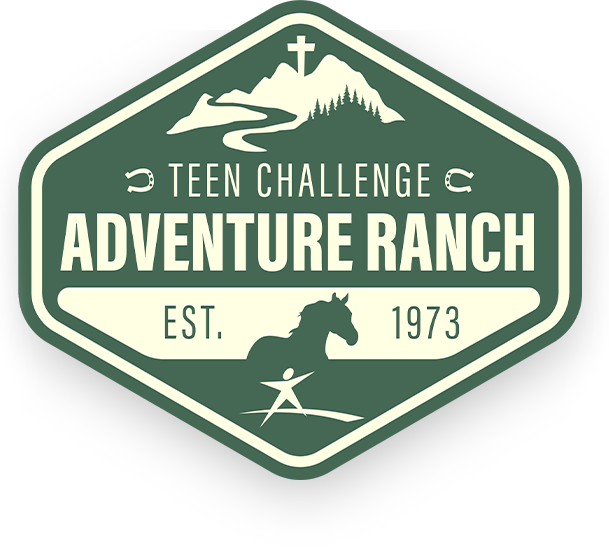Treating Self-Harm in Teen Boys
Teen Challenge Adventure Ranch is a Christ-centered residential treatment facility for teen boys struggling with substance abuse, poor mental health, and maladaptive behaviors like self-harm and suicidal ideation.

What is Self-Harm & Why Do Teens Do It?
Self-harm, also known as self-injury, is the act of deliberately causing harm to oneself, often as a way to cope with emotional pain, intense anger, frustration, or other distressing feelings. It’s not necessarily a suicide attempt, nor does it mean that someone wants to die. Rather, self-harm is a negative coping mechanism to deal with overwhelming or intense emotions.
It looks like cutting, burning, or hitting ones self. It might also include excessive wound picking, deliberate bruising or scratching, head banging or hair pulling and may be triggered by emotional events or chronic in nature.

We can provide a safe, therapy-intensive intervention designed to stabilize behavior, treat underlying conditions and equip teens for success.
Individual, Family, and Group Therapy Sessions Led by Licensed Christian Therapists
24-Hour Nursing and Medication Management
Individualized Academics with Support for Behavior-Driven Learning Needs
Daily Opportunities for Skill-Building with Intentional Activity Debriefs

Understanding Self-Harming Behaviors in Teen Boys
Self-harm is a sign of underlying emotional distress. While it might bring temporary relief from emotional discomfort, it doesn’t address the root causes of the distress. People who engage in self-harm often struggle with emotions and situations they find hard to express or resolve, and they may not have healthier coping mechanisms in place.
Teens may resort to self-harm in order to feel a sense of control, relieve intense emotions, or sometimes just to ‘feel something’ after living in a state of emotional numbness. Self-harm can be a stress or trauma response and requires psychotherapy for treatment.
Warning Signs Your Teen is Self-Harming Include:
Unexplained Cuts or Bruises
Scars in Groups or Patterns
Covering Up with Long Sleeves/Pants
Frequent Bandages
Self-Deprecating Talk
Blood Stains on Personal Items
Possession of Sharp Objects
Withdrawal & Secrecy
Obsessive or Ritualistic Behaviors
When Is a Residential Treatment the Right Choice?
Self-harm is a symptom of a deeper mental health problem. If you see signs of self-harm in your teen, therapy is the first step toward healing. For most teens, working with a licensed therapist in an outpatient setting will be enough to achieve a healthier balance.
When Traditional Treatment Fails, Residential Placement Can Help

Families choose residential mental health treatment for teens that self-harm when their diagnoses are severely impacting daily life. If your son is withdrawing from social activities, having difficulty maintaining friendships, getting bad grades in school, or causing problems at home that feel out of control, a long-term residential mental health treatment facility can help the teen and the family heal.
Are behaviors severely impacting daily life?
When incidents begin to severely impact social, academic, or occupational functioning, treatment can help. The process typically begins with outpatient therapy, but if behaviors do not improve, residential treatment can provide a more immersive treatment experience.
Does the teen have more than one co-occurring diagnosis?
When more than one diagnosis is co-occuring, treatment becomes increasingly complex. These individuals often benefit from an immersive, residential treatment program that can tailor services to meet their unique needs. For example, if impulsive behaviors stem from past childhood trauma, a residential placement can support both root-cause interventions and the development of healthier coping strategies to stabilize behaviors.
Have outpatient treatment options previously failed?
For many, outpatient therapy provides enough support to overcome self-harming behaviors. However, if a teens who have previously failed with outpatient services or who have had multiple short-term placements, often benefit from longer-term treatment like a residential program.
Is there an immediate risk of danger?
If behaviors pose an immediate risk to the individual or those around them, placement in a residential treatment program can help keep everyone safe.
Have Previous Treatment Options Failed?
Residential treatment is often most appropriate for individuals who have not seen sustained success with outpatient or short-term treatment options. The immersive, long-term approach of a residential treatment center can provide enhanced structure and support to facilitate an intense focus on recovery.
Why Choose Teen Challenge Adventure Ranch?
Teen Challenge Adventure Ranch is a dual-diagnosis mental health treatment facility with a Christ-centered, trauma-based approach. We help boys that self-harm due to problems regulating emotions, managing stress, or as the result of a childhood trauma.
Our program provides stabilization, skill-building, and transition support so that your son can identify why he is self-harming, address that issue in a safe, therapeutic environment, and learn healthy coping mechanisms to thrive through sustainable recovery in the real world.
Our six core areas of healing include:
- Clinical Therapy
- Individualized Academics
- Outdoor Adventure
- Equine Therapy
- Family Involvement
- Spiritual Growth



